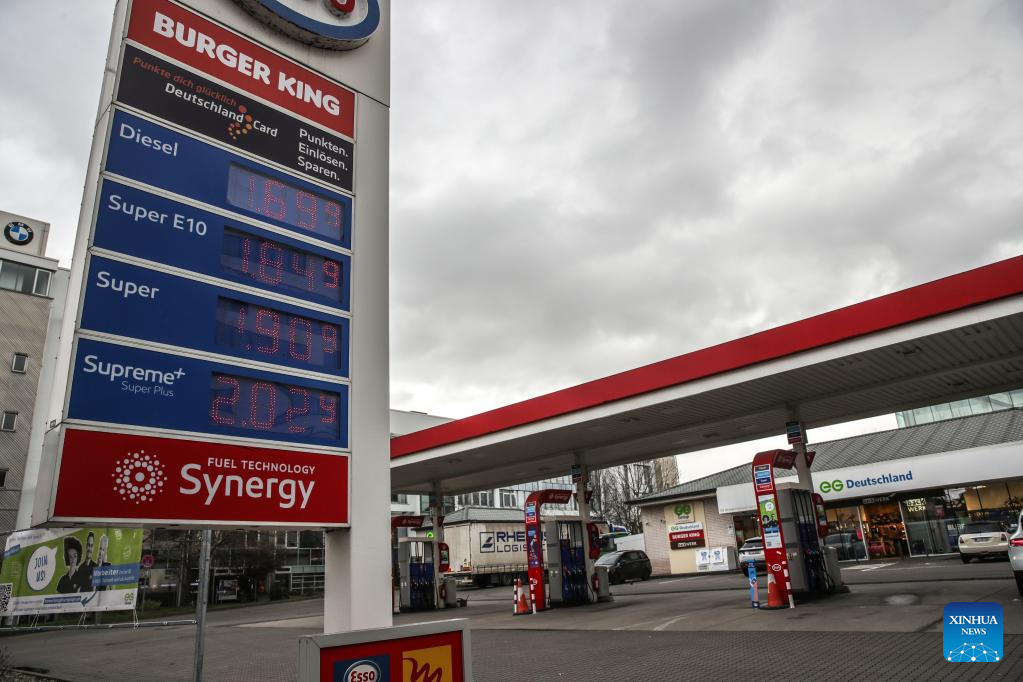
Photo taken on Feb. 25, 2022 shows diesel and gasoline prices displayed on a screen at a gas station in Frankfurt, Germany. Due to fears of supply disruption amid concern over the escalating Russia-Ukraine tension, crude oil and natural gas prices jumped to multi-year highs and were expected to plateau, if not soaring further. The spikes underpinned the outlook of higher inflation that had already dealt a blow to many households, while economists said central banks would find it difficult to contain. (Photo by Armando Babani/Xinhua)
BERLIN, Feb. 25 (Xinhua) -- Germany's supply of natural gas is secure even if prices continue to rise, the government said in a statement on Friday.
Gas stocks in storage facilities earmarked for particularly cold winter days have recently fallen to less than one-third, but this has already been remedied, according to the statement.
"We have stabilized the levels in the storage facilities so that we can safely get through the winter," Minister for Economic Affairs and Climate Action Robert Habeck said.
As a precaution for next winter, the German government is planning legislation to ensure a minimum storage volume. The aim is to "oblige storage owners to have their facilities full before winter sets in," Habeck said.
As long as Germany continues to rely on natural gas, coal and oil, there is a need to establish reserves. The government would consider setting up reserves for coal to ensure energy supply for the medium term, according to the statement.
The country's new government aims to accelerate the coal phase-out, with the last facilities scheduled to be taken off the grid by 2030, eight years earlier than previously planned.
Furthermore, 80 percent of the country's electricity needs should be generated from renewable sources by 2030.
After the Fukushima nuclear disaster in 2011, Germany accelerated its nuclear phase-out. The last plants are to be taken off the grid by the end of 2022 at the latest. ■
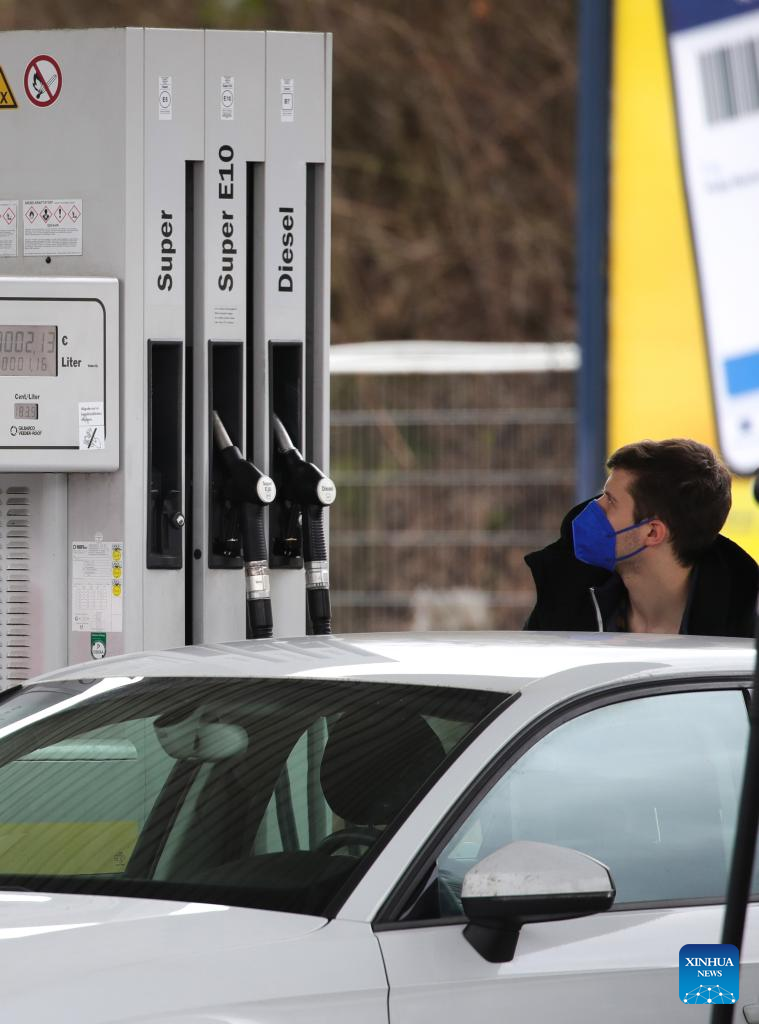
A man fills a tank at a gas station in Frankfurt, Germany, Feb. 25, 2022. Due to fears of supply disruption amid concern over the escalating Russia-Ukraine tension, crude oil and natural gas prices jumped to multi-year highs and were expected to plateau, if not soaring further. The spikes underpinned the outlook of higher inflation that had already dealt a blow to many households, while economists said central banks would find it difficult to contain. (Photo by Armando Babani/Xinhua)
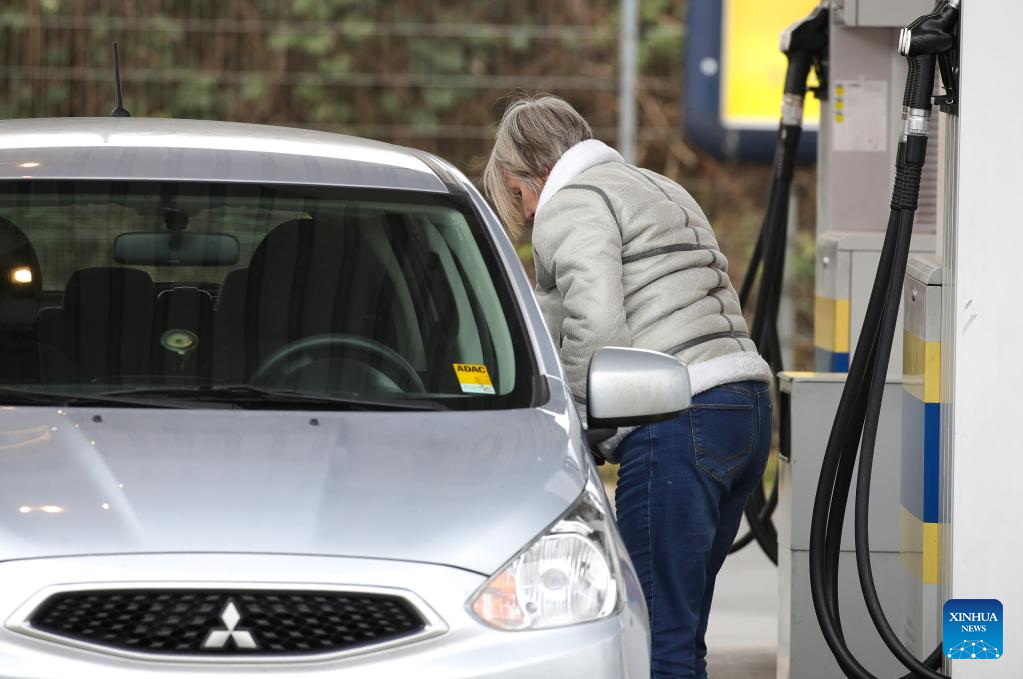
A woman fills a tank at a gas station in Frankfurt, Germany, Feb. 25, 2022. Due to fears of supply disruption amid concern over the escalating Russia-Ukraine tension, crude oil and natural gas prices jumped to multi-year highs and were expected to plateau, if not soaring further. The spikes underpinned the outlook of higher inflation that had already dealt a blow to many households, while economists said central banks would find it difficult to contain. (Photo by Armando Babani/Xinhua)
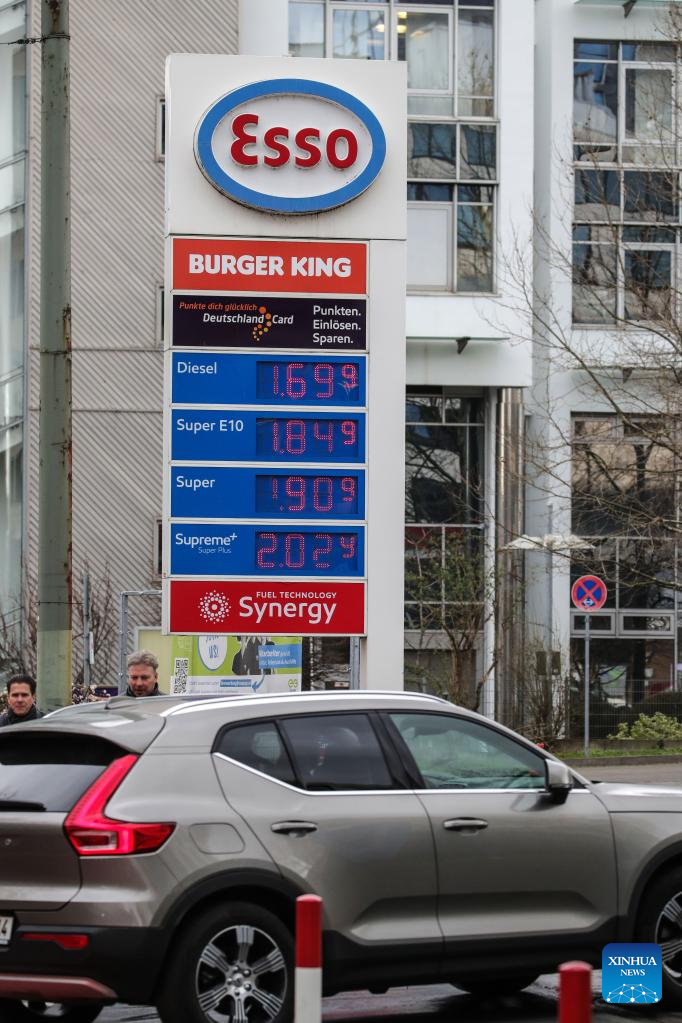
Photo taken on Feb. 25, 2022 shows diesel and gasoline prices displayed on a screen at a gas station in Frankfurt, Germany. Due to fears of supply disruption amid concern over the escalating Russia-Ukraine tension, crude oil and natural gas prices jumped to multi-year highs and were expected to plateau, if not soaring further. The spikes underpinned the outlook of higher inflation that had already dealt a blow to many households, while economists said central banks would find it difficult to contain. (Photo by Armando Babani/Xinhua)
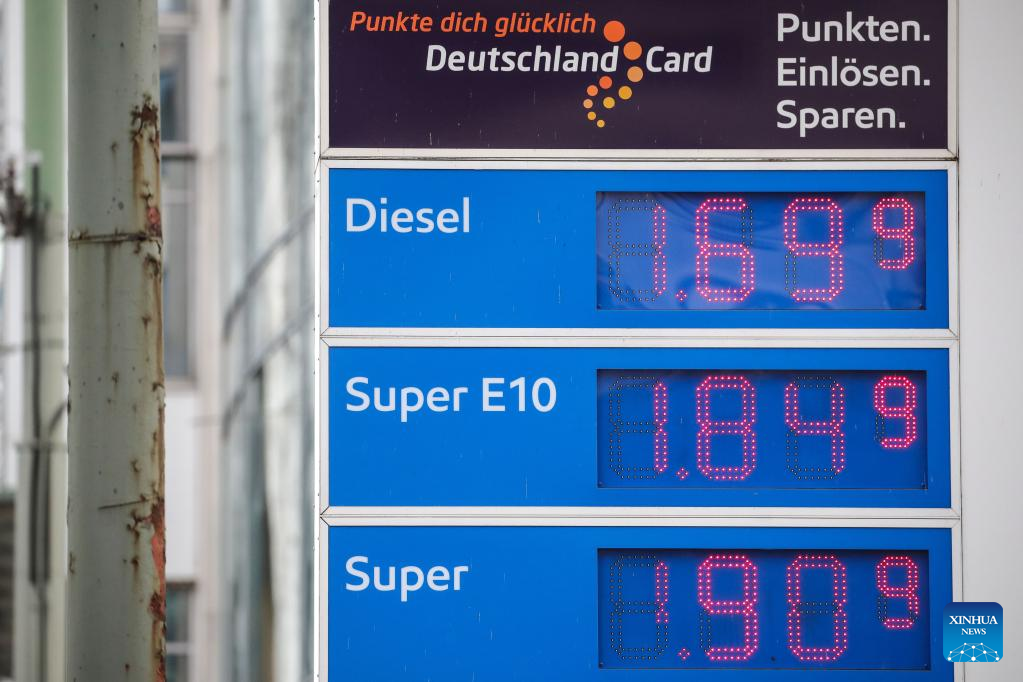
Photo taken on Feb. 25, 2022 shows diesel and gasoline prices displayed on a screen at a gas station in Frankfurt, Germany. Due to fears of supply disruption amid concern over the escalating Russia-Ukraine tension, crude oil and natural gas prices jumped to multi-year highs and were expected to plateau, if not soaring further. The spikes underpinned the outlook of higher inflation that had already dealt a blow to many households, while economists said central banks would find it difficult to contain. (Photo by Armando Babani/Xinhua)



